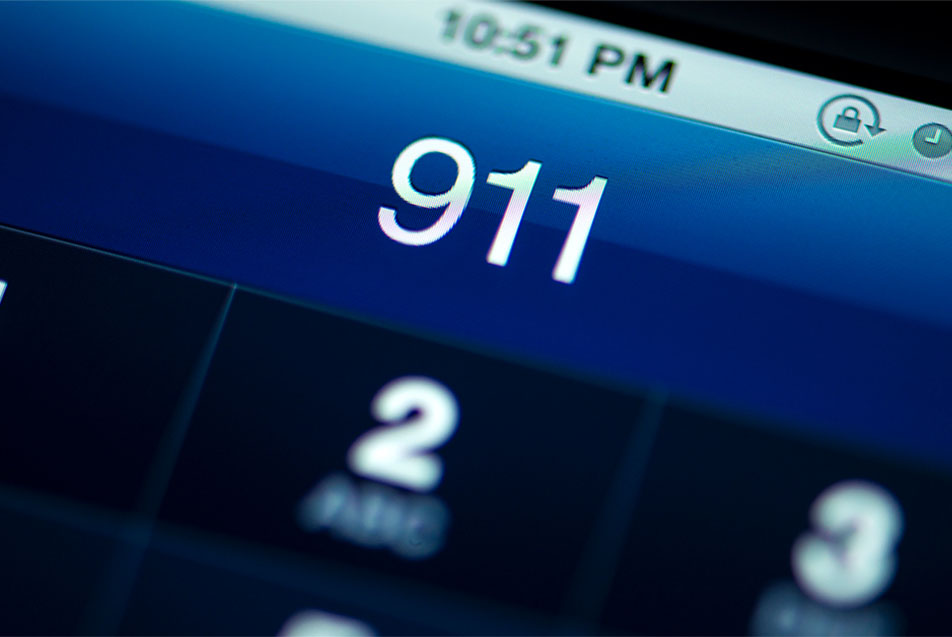
Chris Childers, EMT-P, Parkview Whitley Hospital, tells us about finding his professional passion and what crucial steps you should take if you find yourself in an emergency situation.
A life in EMS.
As a little boy, I would have never imagined I’d be a paramedic. In fact, I was going to own my own boat and be a professional deep sea charter fisherman. But, living in Indiana, there weren’t many options for finding the next big catch, so I put that profession aside.
I was working on a degree in biology when I found my calling elsewhere. I had friends that volunteered at the Allen County fire station and they invited me to come ride along with them on the ambulance. One ride and I was hooked.
I chose this career because, and I know it’s cliché, but “I just wanted to help people.” But also, it was the adrenaline I felt during my ride along. It was nerve wracking hearing dispatch relay the details of the crash. When we arrived, the others jumped into action without hesitation. That’s what intrigued me most; That they could be calm and collected at the scene when someone was critically hurt and trapped in a car.
After 17 years in EMS, I have no regrets about my career choice. Being a paramedic is very rewarding and also challenging. Sure, there are late nights when I miss my family events, but we are coming to the aid of someone in need. Our job is unique in the fact that the scenes are always dynamic and changing. We get to be part of a complete stranger’s best and worst moments. We can make a difference and save a life.
Paramedics are there when crisis has passed and the family is looking for comfort and support, too. I can remember one call, when a mother and father returned home from Christmas shopping to the news that their only son had passed away from an overdose. I asked what I could do for them. “Will you sit and pray with us?” they asked. I sat at their table holding their hands as they prayed for many things. At the end of their prayer, they thanked God for sending me. When I left, the parents hugged me and said, “Thank you for what you did tonight and tell your children you love them”. This job provides much opportunity for reflection, but these moments are the ones that mean the most to me.
How to handle an emergency.
People always ask what they should do if they find themselves in an emergency situation. Here are five tips to keep in mind when calling 911.
1. Relax. It is easier said then done, but stay calm. You have to do your best to remain cool and collected. This will help you survey the situation.
2. Safety is important. Make sure you are in a safe place and position to be rendering care to someone needs it.
3. Be aware. When you call 911, they will ask many questions. Each emergency will elicit its own series of questions specific to the type of emergency you describe when you call. Here are some of the most common questions:
- What is the number you’re calling from and your name?
- Address of emergency?
- Type of emergency: Choking, unconscious person, car wreck, bee sting etc.?
- Are they breathing or acting normal?
- How is the person acting?
When answering the questions, answer the best you can or tell them you don’t know. The dispatchers will help you the best they can, and remember, the information they gather from you is passed onto the fire, police and EMS responding. Some of the questions might seem strange and unnecessary, but they are trying to figure out what is happening.
4. Move. Don’t move. If the person is in danger, absolutely you should try to move them. However, if moving them puts you in danger then you should not move them. If you are talking with 911, the dispatcher might have you move the patient onto the floor, especially if person is unconscious and not breathing.
5. Be prepared to administer CPR. When a person is not breathing and you cannot tell if they have a pulse, you have to administer CPR. You won’t hurt them by doing CPR if they don’t need it, but doing nothing is the worst case scenario. To learn CPR, watch this video, and contact local EMS or a Parkview facility to learn about getting certified in CPR. This way you can perform the proper technique without any hesitation.